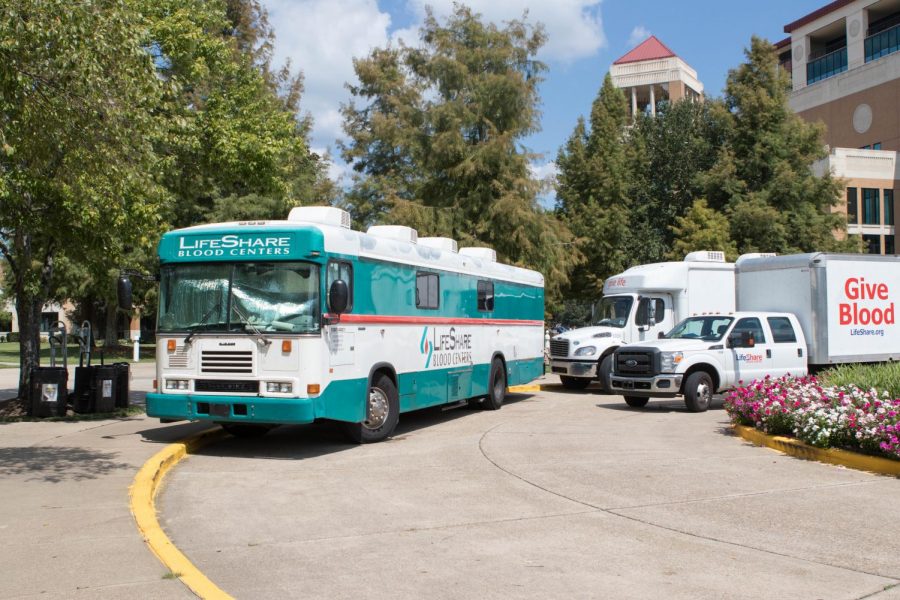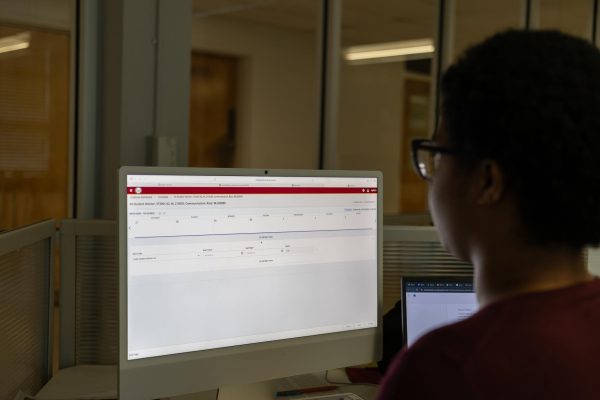LifeShare hosts blood drive on campus
Imagine you are driving to the mall with some friends or going to Wal-Mart to get some groceries. Out of nowhere, you get struck by another vehicle that was speeding pass the yellow light.
Next thing you know, you’re in an ambulance and a paramedic is giving you someone else’s blood to compensate for all the blood you have lost.
Then, you wake up in a hospital bed with a couple of injuries and a concussion. The doctor says that everything is fine because the ambulance had enough blood supply.
With the recent shortage of nationwide blood donation, the LifeShare blood drive on campus is one way to help with the lack of blood.
However, some reasons why someone may hesitate to donate is because they are unaware of the importance of giving blood or nervous about the pain.
Donor technician, Cajerica Coleman, said the blood donated from ULM’s campus goes to Shreveport to be tested for disease before being sent out to hospitals across the nation and in Monroe.
One of the team leaders of the donation, Candis Page, wants students, faculty and staff to feel comfortable about giving blood instead of being fearful about the prick of a needle.
“We are here to help you through the donation process,” Page said. “We make sure you are feeling good, while and after giving blood, because we want people to come back and continue giving blood.”
Donating once is helpful, but donated whole red blood cells only have a shelf life of 42 days. So, a constant source of blood supply is always needed.
Freshman psychology major, Taylor Moore, said this is her fifth time giving within her lifetime because she knows what it’s like to have family members who need blood.
“Two of my grandparents had to get blood infusions, so I know the importance of what donating blood can do for a family,” Moore said.
Another team leader and a Life Share worker of 20 years, John Caldwell, said that not giving blood is detrimental to people and people’s families that need them. He also said do not hesitate about giving blood.
“If you needed [blood], you would want it to be there for you and your family member. So being scared for 15 minutes is a whole lot better than losing a family member you love because somebody was afraid to give blood that could potentially have saved your life,” Caldwell said.
On average, there are over 35 people that donate blood from the trucks on campus, according to Caldwell.




